Minister Avcı: We have ended gender inequality
Minister of National Education Nabi Avcı said there is no gender inequality in the Turkish language and but that Turkey has experienced an example of gender inequality in recent times that has become a set form as women were deprived of their right to education or a right to work in state offices. “We eliminate these obstacles” he declared.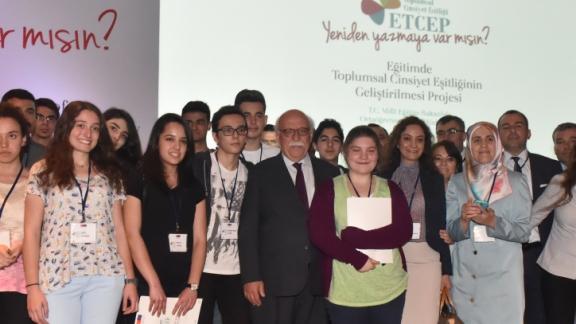
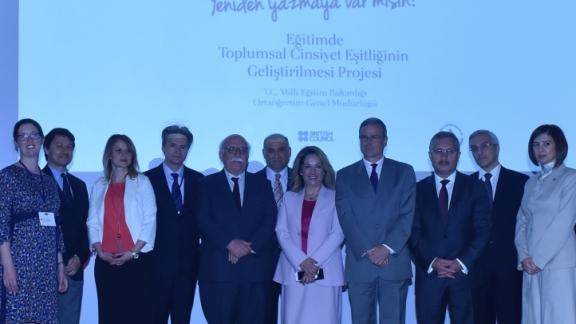
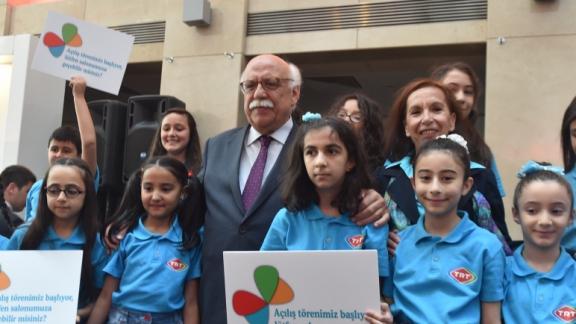
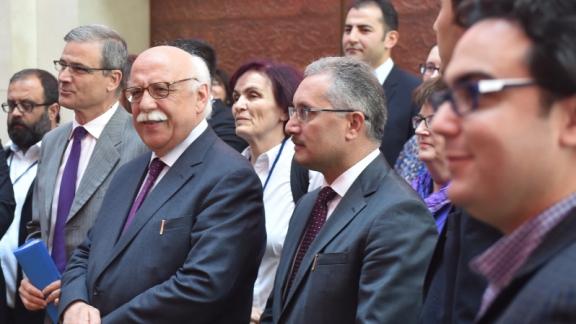
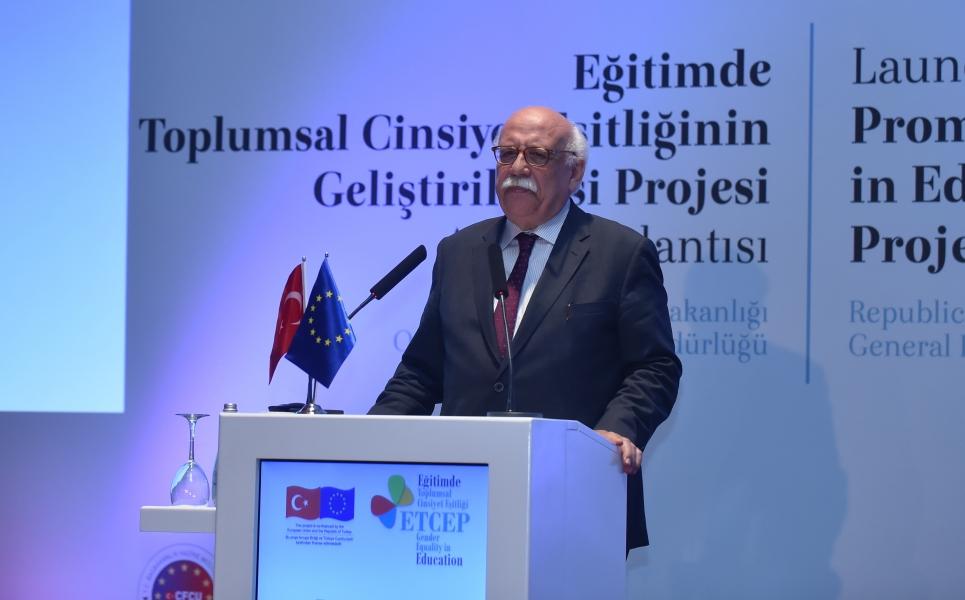
Minister of National Education Nabi Avcı addressed a ceremony held at the Sheraton Hotel to mark the start of the “Development of Social Gender Equality in Education Program.”
Minister Avcı in his speech at the ceremony thanked the Representation of the European Union in Ankara, the personnel of the Ministry of National education as well as all those who contributed to prepare this program.
Minister Avcı said “I deeply thank dear Mr. Bela. I am underlining the name of Mr. Bela” and extended his deep gratitude to the European Union Delegation chief Bela Szombat.
Saying he feels happiness to see that Bela Szombat is slowly warming up to Turkish Minister Avcı went on to say “when we were discussing what we can say at this ceremony I close friend of mine said ‘you can start with Turkish.’ He said we can start by saying that gender discrimination is inherent in the grammar systems in English, French, German and Italian whereas this does not exist in the Turkish grammar system. That is true. In Turkish when we say it we do not have to refer to the person as a he or she. We address women and men the same.”
Minister Avcı said psychiatrist Yankı Yazgan used the proverb “actions speak lauder than words” (Ayinesi iştir kişinin lafa bakılmaz) at this meeting. He went on to say “I personally felt she was addressing me. I was not offended but I felt it was addressed to me. I took it upon me because despite the fact that most of our teachers are women a few of our women are in executive positions at the Ministry of National Education. We know there are various reasons for this. This project will help to highlight this problem, make people think more over it. In fact when the project came before me I asked to myself whether we should remodel the project and turn it into a project that took up our educational management issues but then I realized that much headway had been achieved in setting up the project so we did not touch it. So we are starting this project hoping that we can start a new project that will complement this project.”
“We eliminated social gender inequality”
Saying “This project aims to do some very good work to achieve social gender equality but the best it will do is to review ten teaching programs and 80 text books” Minister Avcı went on to say the Ministry of National education will contribute by helping the training of the participants who will work in the selection of text books and the training of the authors of the text books.
Saying while emphasizing the negative aspects especially in gender inequality in the management of schools and the Ministry Minister Avcı said he also wants to dwell upon some positive aspects and went on to say “the manifestation of social gender inequality differs from society to society. We experienced a form of discrimination against women in our near history. We observed who women wearing different attire to manifest their beliefs were denied education and how women were not allowed to work in state offices. We eliminated these obstacles. We opened the path for those who wanted to display their femininity and display their own thoughts and views. We did a good deed. I know this project will is a project that will direct us to the good things that have been accomplished and the good deed that yet are to be undertaken.”
Sections of gender discrimination will be weeded out of the text books and social gender equality will be fed into the books
Minister Avcı replied to the questions of journalists after the ceremony. Journalists pointed out that the Higher Education Board (YÖK) had set social gender equality as a compulsory course at schools and asked whether such lessons will also be introduced at the schools by the Ministry of National Education the Minister replied “at an average we have 40 hours a week to teach our children. We do not have the chance to turn an important issue into a set lesson at our schools, at our secondary and high schools. In any case when such issues are made compulsory courses they are eventually undertaken as a formality. That is why we feel we should dilute these subjects into other courses and thus preserve the vitality of the issues. Then such issues are taken up in earnest. That is why the main aim of the current project is to review the ten course programs and 80 text books within this perspective. The project will last 24 months. So we will start seeing the favorable feed backs as of next year. You can find material about this in practically every subject. You can make gender discrimination even when you are formulating a math question or you can avoid it. You can make gender discrimination while teaching history. You may not even be aware of this. That is why all tect books should be reviewed from this perspective but for now we will review 10 course programs and 80 text books. Besides that our panelists and authors of text books will also be trained on the issue.
“We experienced the cruelest form of gender discrimination in the attire bans at universities”
Answering a question on the lack of women administrators in the education system Minister Avcı said “I felt that the project should have directly aimed at our administrators, however, the project does not directly aim at our administrators because on how it was designed in the first place. It is more to do with the curriculum but we are aware of our own shortcomings. We are aware of the lack of women administrators in our system. I do not want to look back and accuse anyone but there are many reasons for this problem based on the past. We could not appoint administrators wearing headscarves; we could not send girls to school without a headscarf. We experienced the cruelest form of gender discrimination in the attire bans at universities. We were saddened with the discrimination at our schools, among our administrators and at state offices. Now all those are eliminated. Thus we did good deeds to prevent gender discrimination.”



















